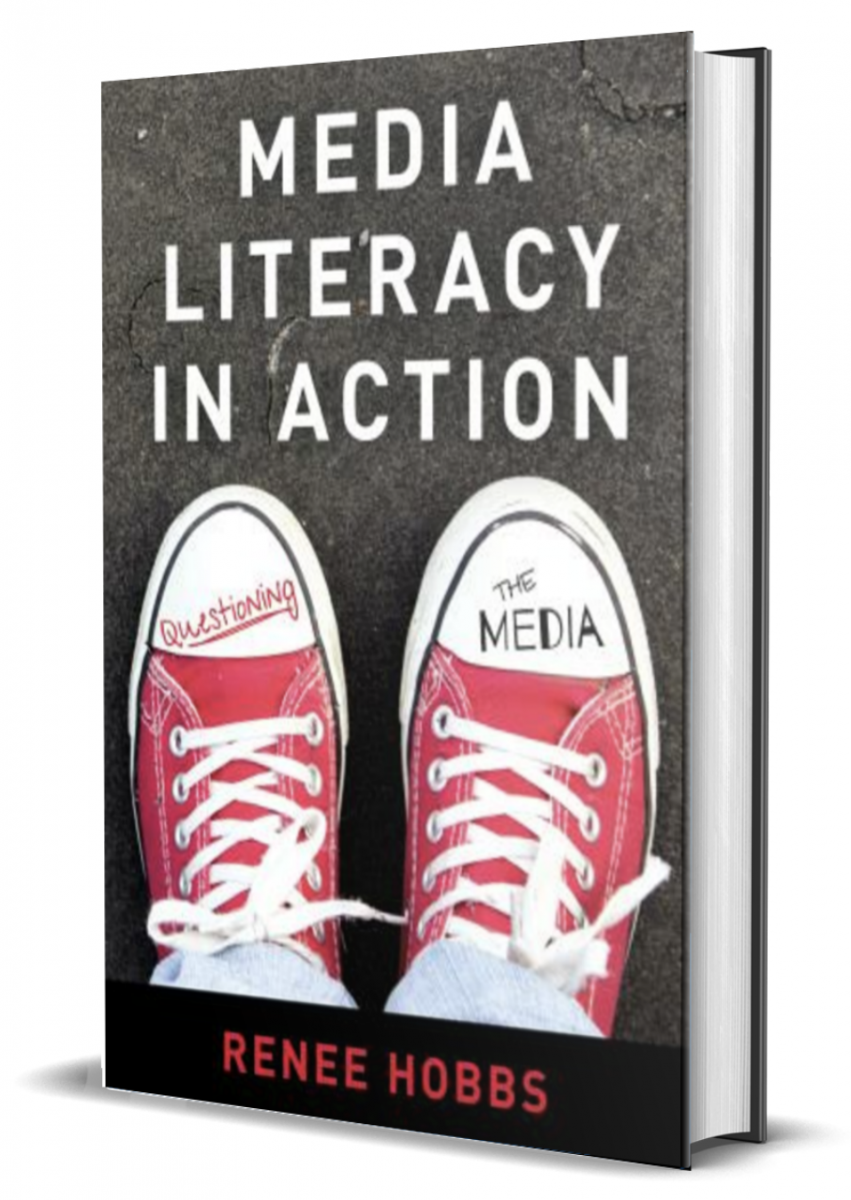Finally, a media literacy textbook written by Renee Hobbs!
 The blurring of entertainment, information, and persuasion is reshaping work, life, and citizenship. As a result, our relationship to media has never been so important nor so complex. By asking critical questions about what they watch, listen to, read, and use, students can be better prepared to be responsible communicators who can use a variety of formats and genres for self-expression and advocacy.
The blurring of entertainment, information, and persuasion is reshaping work, life, and citizenship. As a result, our relationship to media has never been so important nor so complex. By asking critical questions about what they watch, listen to, read, and use, students can be better prepared to be responsible communicators who can use a variety of formats and genres for self-expression and advocacy.
Covering a wide range of topics including the rise of news partisanship, algorithmic personalization and social media, stereotypes and media addiction, advertising and media economics, and media influence on personal and social identity, Renee Hobbs helps students develop the lifelong learning competencies and habits of mind needed to navigate an increasingly complex media environment.
CHECK OUT THE COMPANION WEBSITE: www.mlaction.com
SPECIAL DISCOUNT FOR FRIENDS OF THE MEDIA EDUCATION LAB! ORDER NOW!
Save 25% off with code RLFANDF25 at WWW.ROWMAN.COM or call 1-800-462-6420
Table of Contents
PART I: UNDERSTANDING MEDIA
Chapter 1. What Is Media Literacy?
Chapter 2. Why Are Media Important?
Chapter 3. How Do Search Engines Work?
Chapter 4. How Do People Get the News?
Chapter 5. What Is the Difference between Advertising, Public Relations, and Propaganda?
Chapter 6. Why Are We Attracted to Characters and Stories?
PART II: JUDGMENTS ABOUT TASTE, QUALITY, AND TRUST
Chapter 7. Why Do People Prefer Different Kinds of Music, Movies, and TV Shows?
Chapter 8. Who Decides What Makes Media “Good”?
Chapter 9. How Do People Decide Who and What to Trust?
PART III: MEDIA ECONOMICS
Chapter 10. How Do Media Companies Make Money?
Chapter 11. Are Social Media Free?
PART IV: MEDIA IMPACT
Chapter 12. Why Do People Worry about Stereotypes?
Chapter 13. Is My Brother Addicted to Media?
Chapter 14. How Do People Become Media Literate?